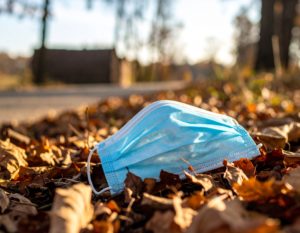Removing facemask requirements in healthcare facilities and lifting the Covid-19 mandatory seven-day isolation period will put the health system and those with health issues at risk as a new sub-variant emerges, experts fear

New Zealanders must hold onto the values of keeping others safe, even when Government policy is no longer aligned with those values, University of Otago Associate Professor Amanda Kvalsvig says.
“People with decision-making power, for example employers, can use that power to maintain workplace safety, ensuring that unwell workers are able to stay home and recover without infecting their co-workers.
“We can never know who might be further down the chain of infections, and what an infection might mean for them.”
Everyone had the power to make sure that any infection stopped with them, she says.
“One of the reasons New Zealand’s pandemic response was so effective in 2020 was that New Zealanders were highly motivated to keep themselves and others safe. The Government is now removing all Covid protections, including in healthcare. This is a concerning decision with widespread implications, especially for disabled people, people with long-term health conditions, and those who care about them.
“Many common respiratory infections spread easily in public settings and a key insight from the pandemic is that these infections can be prevented using simple measures like ensuring good indoor air quality, staying at home when there’s a possibility of being infectious, testing before returning to work in the case of a Covid infection, and wearing a face mask when visiting a clinic or hospital.”
University of Auckland Associate Professor Siouxsie Wiles says the complete removal of Covid-19 protections makes no sense.
“This is the news I’ve been dreading. New Zealand was one of the few countries that still had some Covid protections in place; they’ve helped us get through winter with relatively low case numbers and hospitalisations.
“I really don’t understand how we could remove masking from healthcare settings. That’s the one protection it makes perfect sense to keep forever. With hindsight, you wonder why we haven’t used them more in healthcare settings and aged care facilities, she says.
“It’s also worth noting the health advice is still to isolate if you have Covid-19, though for five days rather than seven. But without isolation being mandated, I wouldn’t be surprised if more employers now start demanding people work when unwell.”
The epidemiologist says we can expect to see higher case numbers, meaning more people will develop long-Covid (about 1 in 5 people according to a recent study from Australia) and more people will experience damage to their brains, hearts, and other organs.
“That will put them at higher risk of developing everything from neurological diseases to heart attacks and strokes in the years to come. This is bad for all of us, but it is especially bad for our more vulnerable/at-risk colleagues, friends, and whānau. We’ve just thrown them under the bus.
“It’s ironic that as we dismantle these last protections, many experts overseas are pleading for masking to be brought back in healthcare settings to protect the most vulnerable. That’s because Covid case numbers and hospitalisations are on the rise again, thanks to new variants.”
Eris, a new sub-variant of Omicron, has been classified by the World Health Organisation as a variant of interest.
University of Otago Associate Professor Dianne Sika-Paotonu says it appears to have growth advantages and potential immune escape characteristics and has become the dominant strain in the US, where hospitalisations have been rising.
Here in New Zealand, there has been additional stress and strain on the healthcare system, she says, with Covid-19 still causing complications along with seasonal illnesses and workforce issues.
University of Otago Professor Michael Baker says the Government’s move is understandable, but points out Covid-19 remains New Zealand’s leading cause of death from an infectious disease and an important cause of hospitalisation.
He would like to see the Government:
- Running a media campaign about the need for self-isolation and mask use in health care settings,
- Developing codes of practice in collaboration with employers, unions, education sector organisations, and hospitality venue operators about how they can support these infection control measures,
- Reviewing infection control in health care facilities including hospital emergency departments and primary care waiting rooms.
“It is important to remember that Government is still supporting our Covid-19 response with widespread free access to vaccines, antivirals, and RAT tests,” he says.








